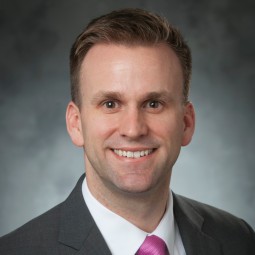Psychotherapy: A Personal Trainer for the Soul
October 01, 2020
Written by Justin Johnson, MD, Director of Veteran Services
What is Psychotherapy?
Psychotherapy, broadly defined, is an “interpersonal treatment based on psychological principles” (UpToDate, 2019).
During psychotherapy, mental health-related change occurs in the interaction between a client and a psychotherapist, with the client-psychotherapist interpersonal relationship, homework assignments, a client’s personal reflection, and other strategies producing behavioral and emotional change. Psychotherapy is also known as “counseling” or simply “therapy,” with treatment providers alternately known as “counselors," "psychotherapists," or simply “therapists.” These include a variety of mental health professionals. Some of the more commonly known are psychiatrists, psychologists, licensed clinical social workers, licensed clinical mental health counselors and licensed clinical addiction specialists. To prevent confusion between other types of therapists or therapy, such as physical therapy, this article will refer to them as “psychotherapists” and “psychotherapy”.
Psychotherapy is a proven treatment for a variety of mental health disorders, such as major depressive disorder, generalized anxiety disorder, panic disorder, PTSD, and personality disorders, among others. In fact, it is the first-line treatment for some disorders, such as PTSD, likely better than medications (VA, 2017).
Psychotherapy Treatment
Even for those taking psychiatric medications, psychotherapy is most often a beneficial treatment to boost the effects. Most mental health disorders improve best with a combination of medications, psychotherapy, and other strategies such as exercise, yoga, or meditation. Psychotherapy has never been more relevant, in fact. With the ongoing COVID-19 pandemic, racism and civil unrest, and an economic downturn, demand for psychotherapy will likely increase. Already in Wuhan, China, after COVID-19, rates of depression and anxiety increased (Lai et al, 2019), both of which benefit from psychotherapy.
Although psychotherapy is a treatment for specific disorders listed above, most people who seek psychotherapy are actually people struggling with everyday issues such as relationship concerns or stresses about work or school. Often a misconception, people who seek psychotherapy are not “crazy”. I like to think of psychotherapy not so much as only a treatment for specific disorders (which it is), but also a tool to boost resilience with everyday life.
Everyone will experience emotional stress at some point, and everyone would benefit from psychotherapy. I propose psychotherapy more like primary care for emotional and mental health or like a personal trainer for the soul, something from which every one of us would benefit. Psychotherapy boosts relationship strength, work-life balance, and self-awareness.
Psychotherapists
In an ambitious society of “go getters”, psychotherapy stands useful to boost careers as well. Daniel Goleman, renowned business psychologist, cites strengths in emotional intelligence as key to great leadership in organizations such as finance, business, and healthcare (Goleman, 1998). Emotional intelligence requires self-awareness, self-regulation, and social awareness, all of which develop and strengthen in psychotherapy.
There is no better place to learn about oneself than by diving into psychotherapy. With this in mind, a more accurate question becomes, who wouldn’t seek psychotherapy?
I cannot recommend psychotherapy strongly enough for everyone, particularly anyone looking to improve self-awareness and to find more fulfilling relationships, stronger performance at work, and improved overall joy in life.
 Justin Johnson, MD
Justin Johnson, MD
Dr. Justin Johnson, Director of Veteran Services, is a board-certified psychiatrist with expertise in mood and anxiety disorders, PTSD and TBI, men’s mental health, military and Veteran mental health, and psychotherapy. He is one of a limited number of psychiatrists trained in an evidence-based psychotherapy for PTSD. Before HopeWay, he treated patients at the Durham VA’s Iraq/Afghanistan Veteran clinic. He is an Assistant Consulting Professor of Psychiatry at Duke University School of Medicine and currently serves in the U.S. Army Reserve. Dr. Johnson attended UNC Chapel Hill, followed by medical school at Johns Hopkins. He completed his psychiatry residency at the Massachusetts General Hospital and McLean Hospital combined program at Harvard Medical School, where he served as the Chief Resident. He went on to complete an additional fellowship in Psychosomatic Medicine at UNC Hospitals, where he developed his expertise in treating patients with complex medical-psychiatric disorders such as TBI. He has also trained in psychodynamic psychotherapy at the Psychoanalytic Center of the Carolinas.
References:
Lebow J. Overview of Psychotherapies. UpToDate, Post, TW (Ed), UpToDate, Waltham, MA, 2019.
Goleman D. What makes a leader? Harv Bus Rev 1998; 76: 98-102.
Learn More About HopeWay
